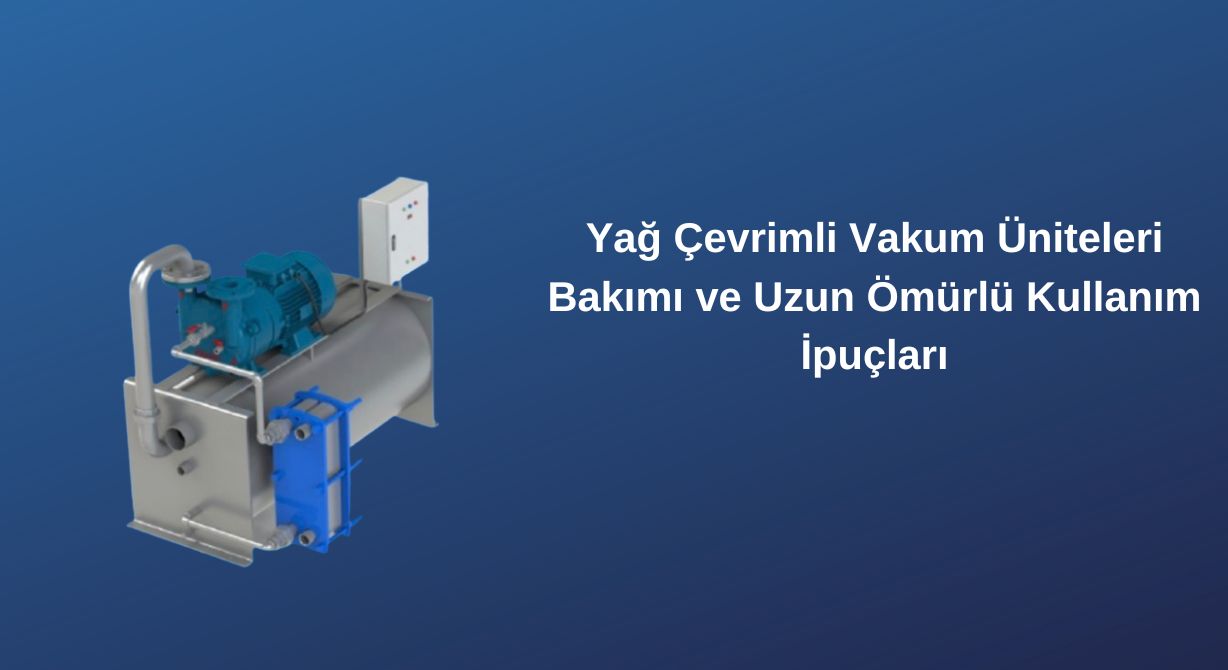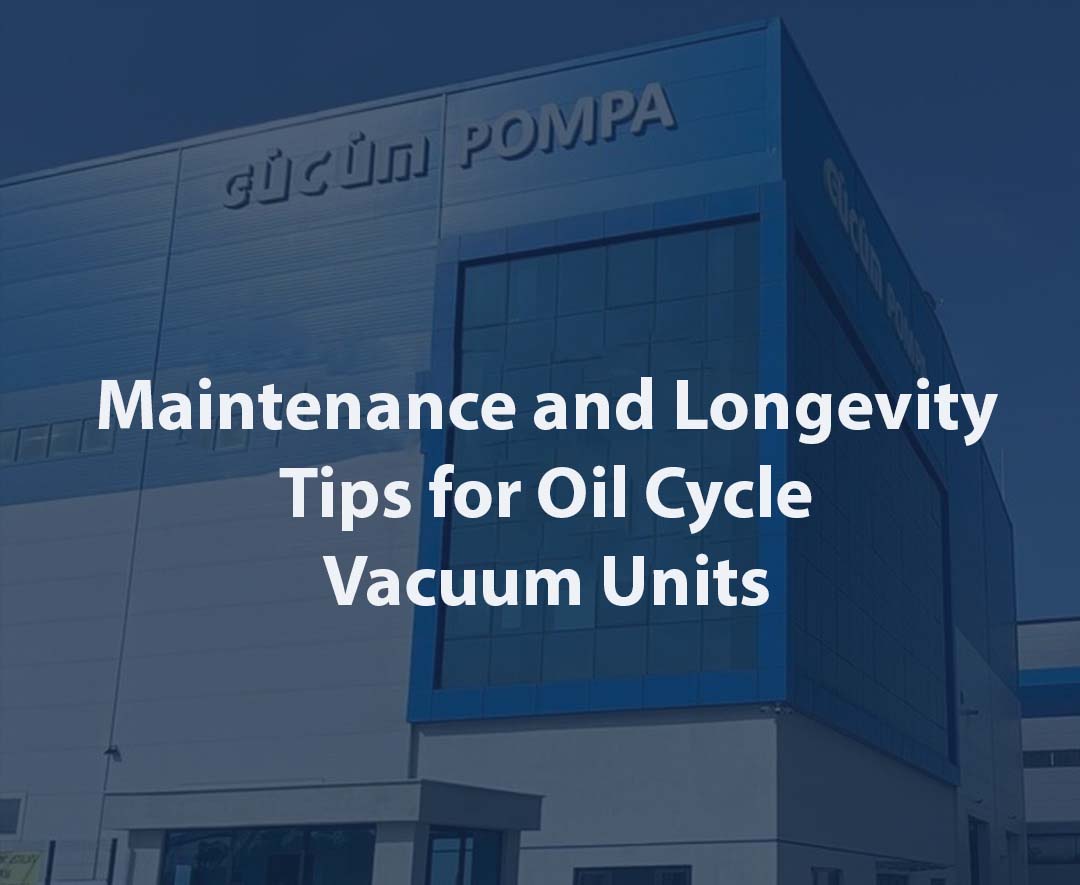Maintenance and Longevity Tips for Oil Cycle Vacuum Units
Table of Contents
- Maintenance of Oil-Sealed Vacuum Units and Tips for Longevity
- Oil Selection and Filtration for Oil-Sealed Vacuum Units
- Oil Change and Cleaning in Vacuum Units
- General Maintenance Tips for Oil-Sealed Vacuum Units
- Tips for Long-Term Performance
- Ways to Increase the Efficiency of Oil-Sealed Vacuum Units
- Precautions for the Safety of Vacuum Units
Maintenance of Oil-Sealed Vacuum Units and Tips for Longevity
The maintenance of oil-sealed vacuum units is highly important for ensuring the device operates efficiently for a long time. Regular maintenance ensures the device works at high performance and prevents malfunctions. The first step is to check the oil level. An oil level that is too low can cause the unit’s motor to overheat and the device to operate inefficiently. On the other hand, an excessively high oil level can also cause the motor to work unnecessarily under strain. Therefore, it is important to regularly check the oil level and keep it at the correct level.
Regular replacement of the vacuum unit’s filters is also an essential part of maintenance. Filters are one of the most critical components affecting air quality and the efficiency of the vacuum system. Clogged filters can significantly reduce the unit’s efficiency and cause the motor to consume more energy. Therefore, filters need to be cleaned or replaced with new ones at specific intervals. General cleaning procedures for the vacuum unit should also be performed regularly. Dust and dirt accumulated on the unit can clog the cooling system and cause the motor to overheat.

Oil Selection and Filtration for Oil-Sealed Vacuum Units
The oil used in oil-sealed vacuum units is highly important for the device’s efficient operation. Oil ensures the motor runs smoothly by reducing friction and preventing overheating. Therefore, selecting the right oil and ensuring its high quality is essential. When choosing oil, factors such as the vacuum unit’s operating conditions and temperature should be considered. The viscosity level of the oil used must be appropriate, as this affects how well the oil performs.
The vacuum unit’s filtration system ensures the oil is effectively protected. Particles accumulated in the oil can damage the device’s internal mechanisms and hinder the motor’s efficient operation. Therefore, the filtration system needs to be regularly checked and cleaned. A clogged filter can impede oil circulation and cause the motor to consume more energy. Thus, ensuring the oil filtration system works efficiently contributes to the device’s longevity.
Oil Change and Cleaning in Vacuum Units
Oil change and cleaning are among the most important stages of maintaining oil-sealed vacuum units. The frequency of oil changes may vary depending on the unit’s usage intensity and operating conditions. Generally, it is recommended to change the vacuum unit’s oil every 3 to 6 months. During an oil change, the old oil must be completely drained, and the new oil must be added in the correct amount. Old oil can become contaminated over time and prevent the oil from functioning efficiently. Therefore, regular oil changes ensure the vacuum unit operates healthily.
The cleaning process of the vacuum unit is also highly important. During an oil change, the unit’s internal mechanisms need to be cleaned. Dirt accumulated inside the device can prevent the oil from distributing efficiently and cause the motor to overheat. Therefore, a cleaning procedure should also be performed with every oil change of the vacuum unit. During cleaning, special attention should be paid to the motor and filters. The outer surface of the unit should also be wiped down regularly and kept free of dust.
General Maintenance Tips for Oil-Sealed Vacuum Units
The maintenance of oil-sealed vacuum units is not limited to just oil changes and filter cleaning. Regularly inspecting the unit is highly important for ensuring long-term use. Periodic tests should be conducted to ensure all components of the vacuum unit are functioning correctly. These tests check whether the motor is operating efficiently and whether there are any leaks in the system. The unit’s connection points and hoses should also be regularly inspected. Leaks or loose connections can prevent the unit from operating efficiently.
The operating environment of the vacuum unit is also a significant factor affecting the maintenance process. The area where the unit is placed must be clean and dry. Otherwise, dust and moisture in the environment can damage the device’s internal mechanisms. It should be ensured that the area where the vacuum unit is located is well-ventilated. Otherwise, excessive heat and poor air conditions can negatively affect the unit’s performance. Therefore, the device must be used in the correct environment and undergo regular maintenance.
Tips for Long-Term Performance
There are a few simple tips for ensuring the long-term performance of oil-sealed vacuum units. First, the vacuum unit must be used correctly. Operating the device only when necessary prevents the motor from overheating and provides energy savings. For the vacuum unit to operate efficiently, environmental conditions must be suitable. The unit should not be operated in excessively hot or humid environments. Additionally, the operating duration of the vacuum unit is an important factor. Vacuum units that run continuously for long periods can cause excessive wear on the motor and lead to malfunctions. Therefore, periodic rest intervals should be provided.
Furthermore, proper oil usage is essential for the vacuum unit to function smoothly. Oil reduces friction in the motor and prevents overheating. The most important factor to consider when selecting oil is its viscosity level. The oil level should also be checked regularly. Insufficient oil can cause the motor to strain and overheat. The vacuum unit’s filters should be cleaned or replaced regularly. Clogged filters prevent the device from operating efficiently.
Ways to Increase the Efficiency of Oil-Sealed Vacuum Units
Increasing the efficiency of oil-sealed vacuum units allows businesses to save on energy consumption and ensures the system operates efficiently for a longer period. First, it must be ensured that the oil level is correctly adjusted. An excessively high oil level reduces the efficiency of the vacuum system, while a low level can cause the motor to strain. Therefore, maintaining the oil level at the specified level is necessary for the system to operate at optimum performance.
Additionally, using the vacuum unit in accordance with environmental conditions is one of the factors that increase efficiency. Excessive heat, dust, and dirt can reduce the vacuum unit’s performance. The area where the unit is placed must be well-ventilated and kept free of dust. The frequency of use and operating duration of the vacuum unit also play a significant role. Unnecessarily prolonged operation can cause the motor to overheat and operate inefficiently. Therefore, vacuum units should only be operated when necessary, and periodic rest intervals should be provided.
Precautions for the Safety of Vacuum Units
The safety of oil-sealed vacuum units is of great importance not only for operational efficiency but also for the health and workplace safety of employees. Above all, safety instructions must be followed before using the unit. The power sources, pump, and moving parts such as the motor of the vacuum unit must be securely protected. It must be ensured that the electrical components are functioning properly and that the cables are not damaged. Attention should be paid to ensuring that all connection points of the vacuum unit are correctly installed and sealed.
The ventilation system in the working area is also an important safety precaution. Vacuum units can absorb some chemical substances, so there should be good airflow in the environment where the unit operates. It is important for personnel performing maintenance on the unit to use protective equipment. Especially during oil changes, contact between the oil and skin should be prevented, and these procedures should be carried out with appropriate equipment. In terms of workplace safety, all these precautions ensure both the more efficient operation of the vacuum unit and the protection of employees’ health.


